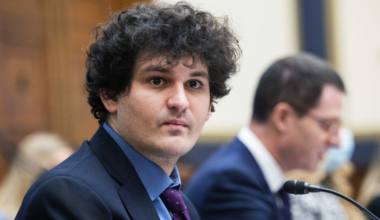FTX has recently filed a lawsuit against Daniel Friedberg, a former executive who held several key positions within the company, including chief regulatory officer at FTX, chief compliance officer of FTX US, and general counsel at Alameda Research.
The lawsuit, filed on June 27, accuses Friedberg of engaging in a series of payments to prevent employees from exposing critical information about the exchange.
According to the complaint, FTX claims that Friedberg acted as a “fixer” for Sam Bankman-Fried, the co-founder of the exchange.
Interestingly, the complaint reveals that Joe Bankman, Bankman-Fried’s father, advocated for Friedberg to be given a significant role within the company, emphasizing the need for one person to have oversight over all operations.
FTX alleges that Friedberg made “hush money” payments to two potential whistleblowers in order to silence them and prevent the leakage of information regarding regulatory issues and the alleged close ties between FTX and Alameda.
One incident detailed in the lawsuit mentions Friedberg retaining the attorney of a whistleblower after making a payment, effectively ensuring their silence.
The 40-page lawsuit unleashed by FTX includes 11 civil charges, accusing Friedberg of breaching his legal duties and approving fraudulent transfers and loans to other former FTX executives.
The suit also highlights the significant compensation Friedberg received during his 22-month tenure at the exchange, including a $300,000 salary, a $1.4 million signing bonus, a separate $3 million cash bonus, an 8% equity stake in FTX US, and cryptocurrency holdings estimated to be worth tens of millions. FTX is now seeking to recover these amounts from Friedberg.
Certain sections of the complaint, particularly those related to the specific amounts paid to the whistleblowers, have been redacted, suggesting the sensitivity and significance of the information.
In one alleged incident from March 2022, Friedberg is said to have provided an “extraordinary settlement” to a female FTX US employee named “Whistleblower-1.”
The employee had worked at the US-based exchange for less than two months and received a salary of $200,000. FTX claims that Friedberg initiated a $12 million deal to retain the attorney of Whistleblower-1 after the settlement.
The lawsuit reveals that the settlement was prompted by a demand letter from Whistleblower-1, stating that Alameda was merely an extension of FTX, aimed at bolstering investor confidence in FTX projects and driving up prices of projects FTX had developed or invested in itself.
Additionally, the former employee alleged that details about company fundraising and various projects were openly disclosed on the messaging platform Slack, allowing all employees present to make trades based on this non-public information.



